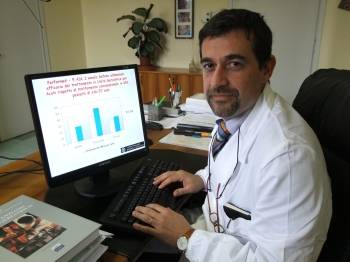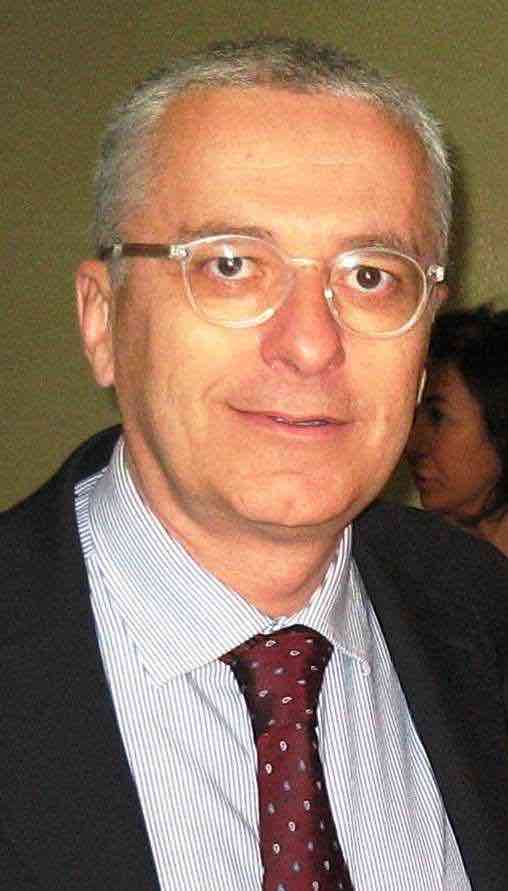Studying at the University of Verona
Here you can find information on the organisational aspects of the Programme, lecture timetables, learning activities and useful contact details for your time at the University, from enrolment to graduation.
Academic calendar
The academic calendar shows the deadlines and scheduled events that are relevant to students, teaching and technical-administrative staff of the University. Public holidays and University closures are also indicated. The academic year normally begins on 1 October each year and ends on 30 September of the following year.
Course calendar
The Academic Calendar sets out the degree programme lecture and exam timetables, as well as the relevant university closure dates..
| Period | From | To |
|---|---|---|
| LMSIO VR - 2° ANNO 1° SEM. | Oct 3, 2019 | Feb 8, 2020 |
| LMSIO VR - 1° ANNO 1° SEM. | Nov 14, 2019 | Mar 14, 2020 |
| LMSIO VR - 2° ANNO 2° SEM. | Apr 16, 2020 | Jun 27, 2020 |
| LMSIO VR - 1° ANNO 2° SEM. | Apr 16, 2020 | Jun 27, 2020 |
| Session | From | To |
|---|---|---|
| Sessione invernale 2° anno Lm Sio Vr | Mar 2, 2020 | Mar 31, 2020 |
| Sessione invernale 1° anno Lm Sio Vr | Mar 16, 2020 | Apr 9, 2020 |
| Sessione estiva Lm Sio Vr | Jul 1, 2020 | Jul 31, 2020 |
| Sessione autunnale Lm Sio Vr | Sep 1, 2020 | Sep 30, 2020 |
| Session | From | To |
|---|---|---|
| Prima sessione Lm Sio Vr | Jun 15, 2020 | Sep 15, 2020 |
| Seconda sessione Lm Sio Vr | Nov 16, 2020 | Jan 15, 2021 |
| Terza sessione Lm Sio Vr | Mar 1, 2021 | Apr 30, 2021 |
| Period | From | To |
|---|---|---|
| FESTIVITA' OGNISSANTI | Nov 1, 2019 | Nov 1, 2019 |
| FESTIVITA' IMMACOLATA CONCEZIONE | Dec 8, 2019 | Dec 8, 2019 |
| Vacanze di Natale | Dec 23, 2019 | Jan 6, 2020 |
| VACANZE DI PASQUA | Apr 10, 2020 | Apr 15, 2020 |
| Festa della Liberazione | Apr 25, 2020 | Apr 25, 2020 |
| FESTIVITA' DEL LAVORO | May 1, 2020 | May 1, 2020 |
| FESTIVITA' DEL SANTO PATRONO SAN ZENO | May 21, 2020 | May 21, 2020 |
| Festa della Repubblica | Jun 2, 2020 | Jun 2, 2020 |
| Vacanze estive | Aug 10, 2020 | Aug 23, 2020 |
| Description | Period | From | To |
|---|---|---|---|
| Stage 2° anno Lm Sio Vr | Stage 2° anno Lm Sio Vr | Jul 1, 2020 | Nov 27, 2020 |
Exam calendar
Exam dates and rounds are managed by the relevant Medicine Teaching and Student Services Unit.
To view all the exam sessions available, please use the Exam dashboard on ESSE3.
If you forgot your login details or have problems logging in, please contact the relevant IT HelpDesk, or check the login details recovery web page.
Should you have any doubts or questions, please check the Enrollment FAQs
Academic staff
 mcarfagna@ausl-cesena.emr.it
mcarfagna@ausl-cesena.emr.it
 trap71@hotmail.com
trap71@hotmail.com
 tullio.ferrari@univr.it
tullio.ferrari@univr.it
 alvisa.palese@dstb.uniud.it
alvisa.palese@dstb.uniud.it
 loredana.pancheri@univr.it
loredana.pancheri@univr.it
 sara.pilotto@univr.it
sara.pilotto@univr.it
 danielesalmaso@fondazionezancan.it
danielesalmaso@fondazionezancan.it
 fvallicella@vodafone.it
fvallicella@vodafone.it
 francesca.venturini@aopd.veneto.it
francesca.venturini@aopd.veneto.it
 cinzia.vivori@apss.tn.it
cinzia.vivori@apss.tn.it
Study Plan
The Study Plan includes all modules, teaching and learning activities that each student will need to undertake during their time at the University.
Please select your Study Plan based on your enrollment year.
1° Year
| Modules | Credits | TAF | SSD |
|---|
2° Year activated in the A.Y. 2020/2021
| Modules | Credits | TAF | SSD |
|---|
| Modules | Credits | TAF | SSD |
|---|
| Modules | Credits | TAF | SSD |
|---|
Legend | Type of training activity (TTA)
TAF (Type of Educational Activity) All courses and activities are classified into different types of educational activities, indicated by a letter.
Law, health economics and professional liability (2019/2020)
Teaching code
4S007226
Credits
7
Coordinator
Language
Italian
Also offered in courses:
- Health Law and Economics - DIRITTO AMMINISTRATIVO E SANITARIO of the course Master's degree in Rehabilitation Science in Healthcare Professions
- Health Law and Economics - DIRITTO DEL LAVORO of the course Master's degree in Rehabilitation Science in Healthcare Professions
- Health Law and Economics - ECONOMIA SANITARIA of the course Master's degree in Rehabilitation Science in Healthcare Professions
The teaching is organized as follows:
Program
------------------------
MM: DIRITTO AMMINISTRATIVO E SANITARIO
------------------------
------------------------
MM: DIRITTO DEL LAVORO
------------------------
1. The purpose of labour law and its evolvement, in the Italian and EU legal systems. 2. Constitutional principles. Article 97 Const. and the regulation of employment relationships in the public sector. 3. Distinction between subordination and self-employment; typical and atypical jobs; collaborations; 4. The hiring process 5. The regulation of the employment relationship: the employers’ powers (of instruction, control and disciplinary) and their limits. Differences between public and private sector. 6. Dismissals and protections against unlawful dismissals. Differences between public and private sector. 7. Pay.
------------------------
MM: ECONOMIA SANITARIA
------------------------
The course programme is divided into: 1. The health care and the National Health system 2. The organization of the health care organization 3. The role of the professional in health care 4: The budgeting process and the control activity
------------------------
MM: RESPONSABILITA' PROFESSIONALE
------------------------
Bibliography
| Author | Title | Publishing house | Year | ISBN | Notes |
|---|---|---|---|---|---|
| Ferrari Tullio | Dispensa su Diritto amministrativo, Diritto sanitario, Diritti dei cittadini/utenti e promozione della legalità e integrità | 2020 | |||
| M. Persiani-M. D'Onghia | Fondamenti di diritto della previdenza sociale (Edizione 2) | Giappichelli | 2018 | 9788892105232 |
Examination Methods
------------------------
MM: DIRITTO AMMINISTRATIVO E SANITARIO
------------------------
------------------------
MM: DIRITTO DEL LAVORO
------------------------
The assessment of learning outcomes includes: - For attending students, an oral examination and a written text on the topics dealt with during classroom lessons. - For non-attending students, an oral examination on the entire programme as presented in the textbooks. Objectives of examinations For attending students, the oral examination aims at assessing the capacity of the student to link the theoretical and regulatory framework with practical issues and problems, and solve case-study with coherent and proper legal language and reasoning. For attending students, the written text aims at assessing the student’s knowledge of the programme topics, as dealt with in classroom lessons. For non-attending students, the oral examining, which focuses on on the entire programme as presented in the textbooks, aims at assessing their knowledge, their capacity to use proper language, to select and analyse the key-topics of the subject, to develop links between the topics through legal reasoning. Content and modalities of the examinations For attending students, the oral examination focuses on the analysis of a specific case-study, given to the student in advance. The related mark is expressed in thirtieth. For attending students, the written text focuses on the topics dealt with during classroom lessons, with both open-ended questions and multiple-choice questions. The related mark is expressed in thirtieth. The final mark results from a balance of the two marks. For non-attending students the oral exam focuses on the programme as presented in the textbooks. The final mark is expressed in thirtieth.
------------------------
MM: ECONOMIA SANITARIA
------------------------
The exam takes place in written form and is functional to verify the acquisition of the principles of management of health care organizations.
------------------------
MM: RESPONSABILITA' PROFESSIONALE
------------------------
Career prospects
Module/Programme news
News for students
There you will find information, resources and services useful during your time at the University (Student’s exam record, your study plan on ESSE3, Distance Learning courses, university email account, office forms, administrative procedures, etc.). You can log into MyUnivr with your GIA login details: only in this way will you be able to receive notification of all the notices from your teachers and your secretariat via email and soon also via the Univr app.
Gestione carriere
Orario lezioni
Ultimo aggiornamento orario lezioni: 19/04/2024
Documents
| Title | Info File |
|---|---|
|
|
pdf, it, 480 KB, 23/06/21 |
|
|
octet-stream, it, 1293 KB, 23/06/21 |
|
|
pdf, it, 124 KB, 23/06/21 |
|
|
pdf, it, 338 KB, 19/04/24 |
|
|
pdf, it, 409 KB, 17/04/24 |
Stage
Documents
| Title | Info File |
|---|---|
|
|
pdf, it, 543 KB, 05/10/22 |
|
|
msword, it, 198 KB, 23/06/21 |
|
|
octet-stream, it, 1297 KB, 05/10/22 |
|
|
octet-stream, it, 1297 KB, 05/10/22 |
|
|
octet-stream, it, 1324 KB, 05/10/22 |
|
|
octet-stream, it, 1323 KB, 05/10/22 |
|
|
msword, it, 44 KB, 23/06/21 |
|
|
msword, it, 104 KB, 23/06/21 |
|
|
pdf, it, 111 KB, 10/01/24 |
|
|
pdf, it, 110 KB, 14/02/24 |
Student login and resources
Appelli d'esame
Documents
| Title | Info File |
|---|---|
|
|
pdf, it, 122 KB, 17/04/24 |
|
|
pdf, it, 154 KB, 16/03/23 |
|
|
pdf, it, 185 KB, 20/01/23 |
|
|
octet-stream, it, 1299 KB, 31/01/23 |

 +039 0458027288
+039 0458027288


















